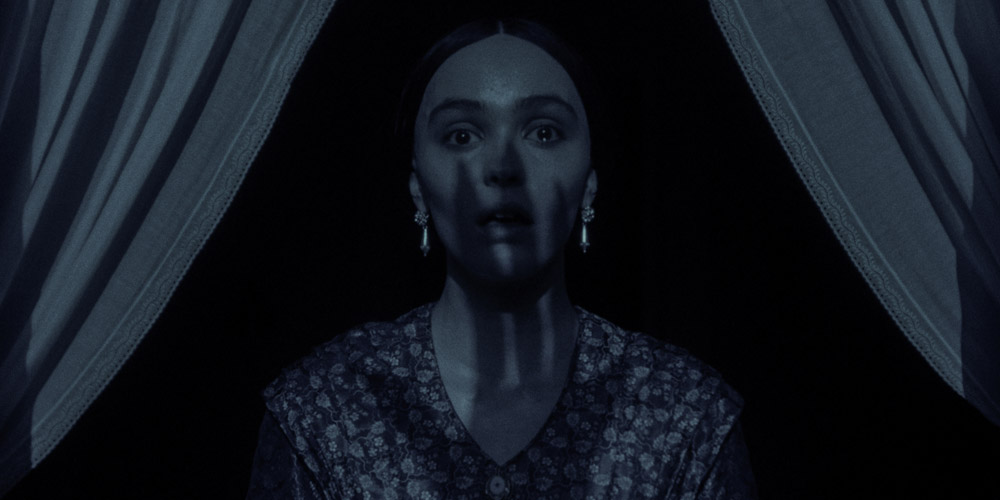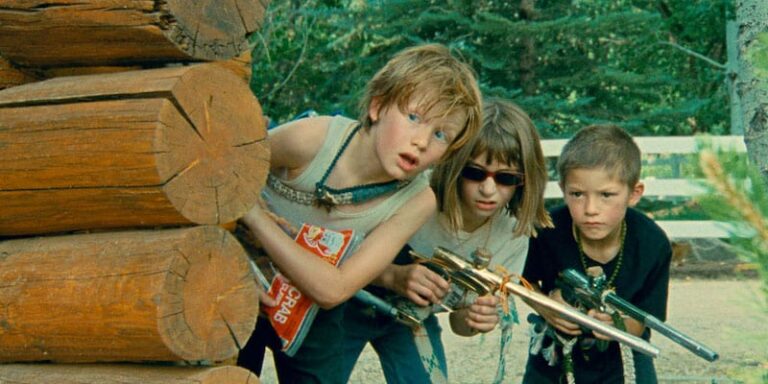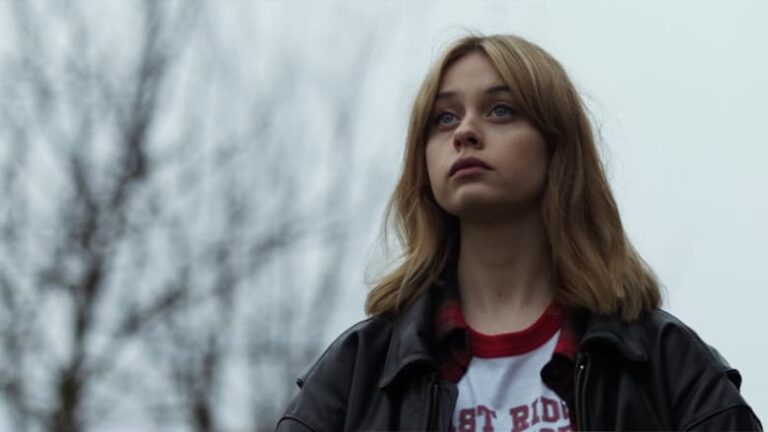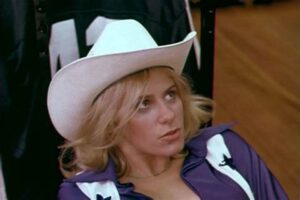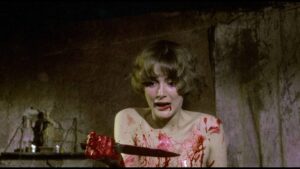Directed by Robert Eggers
Written by Robert Eggers (Story by Bram Stoker)
Starring:
- Lily-Rose Depp as Ellen Hutter
- Nicholas Hoult as Thomas Hutter
- Bill Skarsgård as Count Orlok
- Aaron Taylor-Johnson as Friedrich Harding
- Willem Dafoe as Prof. Albin Eberhart von Franz
Rating: ![]()
The sempiternal battle of superstitious credulity and empirical incredulity, the philosophy of the faithful colliding with that of the infidel. The pictorial romanticism and supernatural fetishism that make up all of Robert Eggers’ lean, but already rich oeuvre meet vampire mythos in this gothic homage to one of the landmarks of German expressionist cinema, Murnau’s Nosferatu. And this stroke of cinematic bravura – though some might dismiss it as pointless and rhetorical – overturns every concept we now associate with the ultimate purpose of “remakes” in an era when they are done ad nauseam. Eggers’ Nosferatu is a terrific aesthetic reinterpretation of the seminal 1922 silent picture: logically, it’s a remake. However, it is far from functioning as one. The functionality of Eggers’ Nosferatu lies in its auteurism. It is ceremonial filmmaking crafted by a ceremonious filmmaker. If John Ford had ever directed horror films, I have no doubt they would look and feel like Eggers’ movies. Nosferatu is all about form and lore, about grasping an unearthly spacetime conceived out of puritanical folklore and customs, ancestral legends and primordial fiction.
The deeper one delves into Robert Eggers’ cinema—arguably the most consistently exceptional contemporary American director producing high-quality, non-populist fare—the more evident it becomes that his work is a singular, psychosexual deconstruction of traditional societies. Nosferatu, rather than adhering to Bram Stokerian conventions of horror, emerges as a film imbued with wistful eroticism, driven more by forbidden desire than outright terror. Sylphlike and uncanny, Lily-Rose Depp playing the delicate and unhinged Ellen may be the most quintessential female character in Eggers’ oeuvre. She embodies virginal innocence, the stereotype of unwavering morality. Naturally, despite these decorous traits as the ultimate incarnation of the immaculate, she dwells in an uncomfortable, mystifying state of self-conscious sexual repression. It is 1838, Ellen lives with her beloved husband Thomas (Nicholas Hoult) in Germany, a period of aristocratic values and Europeanisms swayed by Victorian ethics. Director Robert Eggers’ subtle but customary disinterest in the craft of storytelling revealed in just his nightmarishly moody introductory sequence -suggested with ominous expressionistic compositions- announces that this will be an offbeat, if not the most heterodox, cinematic adaptation of Bram Stoker’s novel.
It’s the story of Dracula, I already know it, you certainly know it, everybody knows it. But seeing Nosferatu felt as if I didn’t know it at all, at least thematically I believe that Eggers’s vision manages to penetrate unexplored territory not yet covered by any other filmmaker who has dealt with the mythology of the most infamous bloodsucker. This uncharted ground is that of a very idiosyncratic psychosexual force. Sure, Hammer made the Prince of Darkness sexy, and Coppola also did his own thing with the romanticism of his 1992 film. Even Werner Herzog orchestrated an exquisitely erotic ambiance with his 1979 Nosferatu. Vampires and their bloodlust is figuratively sexual, we all acknowledge that. But there has never been a more lustful approach to that quest for blood than Eggers’ Nosferatu. Lily-Rose Depp’s gravely outrageous performance is so horny that at times you’d think the filmmakers were engaging in a porno spoof. Even though these volcanic sexual externalizations bear a certain irony that errs on the side of being theatrical, they are the pivotal motifs that set the mood for the entire film. For it is in these instances of possessed outbursts and infernal insanity that Nosferatu as an adaptation is at its thematic finest. It is not the story about that notorious Transylvanian vampire infatuated with his real estate agent’s wife, it is the tale of how that woman deals with his seductions.
A powerful feeling of eroticism is ever present, but also a strong sense of apocalypse triggered by Nosferatu‘s arrival on German soil. A major environmental metamorphosis occurs, first in the gloomy and evocative Carpathian landscapes of Transylvania and then in the doomed rat-infested town of Wisborg. The stylistic approach to this transitional plane is one of the great achievements of Nosferatu, because with these atmospheric patterns it builds up an overwhelming contrast of ideas that only reinforces the psychosexual thesis of the film. The eponymous vampire compellingly played by Bill Skarsgård is a tragic creature in his own right; Dracula or actually any immortal being is invariably a tragic creature for self-evident reasons, but Skarsgård offers more than just the aura of tragedy in his monstrous persona. Nosferatu’s spine-chilling and repulsive appearance emphasizes the horror of an immortal existence, and his mesmerizing and seductive powers emphasize the horror of a loveless existence.
Eggers does not picture his Nosferatu as the Nosferatu of the great Max Schreck – who stands as the undisputed vampire in the history of cinema – Eggers’ beautifully staged phantasmagoria renders Skarsgård’s Nosferatu as a fallen angel who can evoke a degree of compassion in us, and ultimately redemption. While redemption is not particularly what the script aims to provide for Nosferatu, it does strive for a more poetic culmination than usual. The sexual appetite of Lily-Rose Depp’s character corrupting her puritanical values illustrates a monstrosity (under the conservative viewpoint of her era) quite analogous to that of Count Orlok, who is a creature that in Christian eyes epitomizes all evil but in reality, could pass as any other animal acting on pure instinct. Solving complex visual patterns with flawless geometric camera motions, Eggers’ Nosferatu achieves a breathtaking balance of sonic and visual expressionism. Witnessing this audiovisual feat of nocturnal thrills and chills is hallucinatory. But nothing, to my mind, is more exciting in this film than the sepulchral sonorous voice of Bill Skarsgård as Count Orlok. His voice acting is a masterpiece of spectral reverberations and hellish echoes verbalized in a pungent Romanian accent that seems to emanate from the depths of the underworld, a thundering echo from the darkest caverns. And then we have Willem Dafoe as the infallible Van Helsing, a tremendous performance that adds greatly to the extraordinary feeling of mystical cataclysm in the film.
One of the classic horror tales once again transferred to the big screen, this time with a resounding success. Robert Eggers’ Nosferatu joins a filmography that questions the philosophical constructs behind Puritan societies, pagan Middle Ages and Victorian civilizations, all shaped in the purest horror fashion. Bottom line is that there is no such thing as a remake of Nosferatu, only engrossing eulogies to Murnau’s expressionistic take on Bram Stoker’s gothic yarn, and this one proves its worth by restoring the imperishable artistry of Nosferatu.
